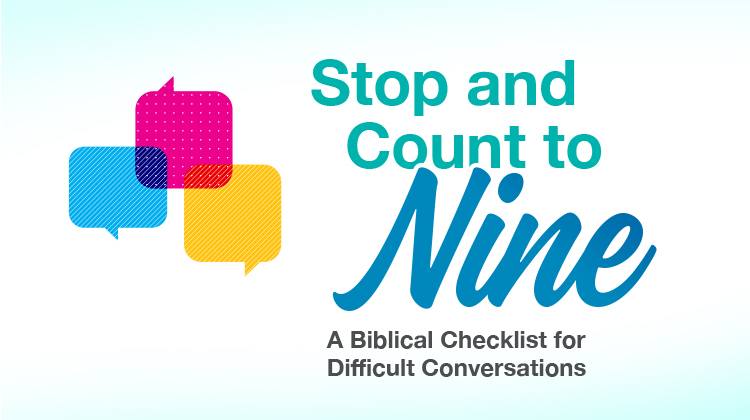Who could you share this article with?
Who needs to hear the hope that prophecy provides? Share this article on social media or email the article link to a friend today!

The tone of our national discourse is the subject of much debate. Some say that our nation has never been so divided since the Civil War. Well, I remember the riots of the late 1960s and early 1970s, and I’m not sure how to compare the social temperature of various generations. But I’m as troubled as anyone about today’s angry rhetoric, divisive speech, racial unrest, and cultural division. Everyone is talking, but no one seems to be listening.
I have deep convictions about equality, fairness, charity, love, and issues of personal holiness. These feelings have solidified over a lifetime of Bible study and personal interaction. They are consistent with God’s love for the world and His plans for peace. Yet holding biblical opinions isn’t enough; we have to communicate them to an unbelieving world in a biblical way.
Visualize what’s next on God’s prophetic calendar with this beautifully detailed timeline. It’s a must–have for every student of Bible prophecy.
Request Now >A few years ago, I wrote a book called A Life Beyond Amazing. While working on that project, I began evaluating my life in terms of the nine traits in Galatians 5:22-23. Since then, I’ve found it a valuable exercise to regularly revisit those traits, which are the outgrowth of a Spirit-filled life. They represent nine decisions that empower us to convey Christlikeness in an increasingly secular society.
I’ve found it a valuable exercise to regularly revisit these traits, which are the outgrowth of a Spirit-filled life.
In tense moments, it’s helpful to start by counting to nine. Traditionally, we learn to count to ten, but nine will do. Here are nine questions that can provide a spiritual checklist to work through before entering a contentious conversation. Ask yourself:
When we have the peace of Christ in our hearts, it flows into our relationships and interactions, making it possible for us to be peacemakers
Our sinful nature longs to erupt when it’s provoked…. It requires discipline to think, ask for advice, and pray before acting or speaking.
These nine questions form a litmus test of maturity. They are the missing ingredient from news outlets, pundits, politicians, talking heads, and debates. It has disappeared from university campuses, public rallies, office water coolers, and often from family suppers and Sunday pulpits. Few people on social media stop to count to nine. Consequently, we’re discovering what it’s like to live in a society devoid of the fruit of the Spirit.
Saying “Yes” to the NINE requires us to relinquish our ambitions and commit to following Him.
God’s people must interact with their culture in a countercultural way—pausing long enough to ask these nine questions, even in the heat of the moment. It’s not easy! Actually, it’s impossible unless we live in the power of the Holy Spirit. Saying “Yes” to the NINE requires us to relinquish our ambitions and commit to following Him.
Imagine the difference we would make if Christians across America memorized Galatians 5:22-23 or at least internalized this list of nine traits. What if we meditated and prayed over the NINE frequently? What if we chose to live that way? To talk that way?
That’s the best answer I know for addressing the anger bubbling up in our society right now. We cannot accept responsibility for what the world does. Still, we can demonstrate a better way by conveying Christ’s love, joy, peace, compassion, generosity, integrity, self-control, humility, and patience.
These NINE provide a template for every aspect of life. And they also suggest a standard by which to gauge our participation in outside groups, activities, causes, personalities, and movements.
As Christians, we will exert incredible influence in our culture if we pause and count to NINE.
With images of majestic mountain landscapes from all around the world, this 14-month calendar reminds us of God's faithfulness and the power of faith.
Request Now >for a Gift of Any Amount